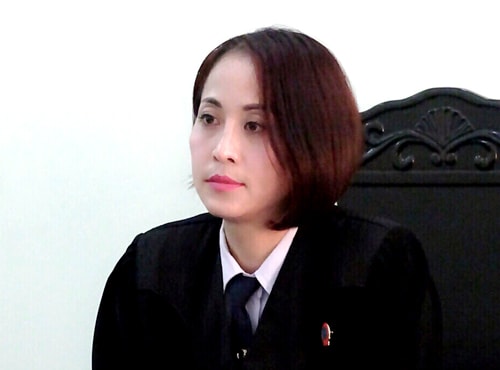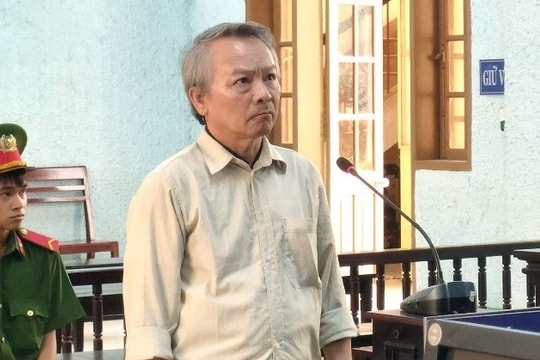Female judge restores 'late afternoon' happiness for intellectual couple
He compared his marriage to his last tooth, which was decayed. If he pulled it out, there would be no tooth left, but if he kept it, it would be painful.
Judge Hoang Thi Bich Duyen (Family and Juvenile Court of Ho Chi Minh City People's Court) has more than ten years of experience in adjudication. Assigned to handle many divorce cases, the confession of a man over 60 years old about his marriage, during a court appearance a few years ago at District 11 People's Court, is something she will never forget. This is also one of the "difficult cases" that she has successfully mended.
"They reunited, continued to live together and considered me a close family member," the female judge shared.
The couple are both retired officials, with 2-3 university degrees, and she was an excellent literature student in the North. Not long before, they celebrated their 35th wedding anniversary with the congratulations of relatives, friends, and children. But now in court, they showed a calm attitude, ready to accept whatever comes to their marriage. Every time the court invited them, he took her there. They still called each other "brother" and "sister" in a polite tone.
Responding to the reason for the divorce, he said: "Our current marriage is like the last decayed tooth in our two rows of teeth. If we pull it out, there will be no tooth left, but if we leave it, it will hurt. It torments me day and night, Madam Judge. Divorce is the final solution to help me free myself from the pain that has tormented me for so long...".
He turned to look at his wife, his voice gentle: "Honey, do you know that for the past few decades my life has only had cold winters?". She looked at him and replied: "From now on, your life will have spring, summer, and fall... I agree to divorce so you can fully experience life."
|
Judge Duyen in a court session. |
"The life experience and knowledge of my grandparents made it difficult for a judge who was only my age to resolve the matter in a reasonable manner. The disciplined life of a family with a traditional education sometimes made them not dare to express it to the outside world or face themselves. From then on, the conflict continued to build up until it became unbearable. They decided that divorce was the final solution," Ms. Duyen shared.
To successfully reconcile and reunite, she had to listen to their hearts through many working sessions. She also met each person individually, and finally understood the delicate, difficult-to-say reasons of the grandparents. When she felt their thoughts and desires for each other, she decided to be the "bridge".
The judge gave each of them a piece of paper, asking them to write down all the good and bad points about their spouse, the gains and losses if they divorced... She sat for hours listening to them talk about each other; recalling memories from the subsidy period, the joy of welcoming their first child, as well as when the children grew up... They gradually calmed down and accepted reconciliation and reunion.
Like many other couples, they signed the divorce papers by mutual consent. The settlement of their request was just a formality. Because, everyone who went to court had the mentality that the conflict was serious and prolonged, the purpose of marriage was not achieved and they wanted to free each other as quickly as possible.
"But with inner faith, I believed that they would cling to their happiness for the rest of their lives, and that came true. That is also the joy I find in my work," the female judge said.
According to the provisions of the previous Civil Procedure Law, conciliation was a mandatory procedure for judges when resolving divorce cases. However, there were cases where, through studying the records and contacting the parties, the judge knew that trying to hold them back would only cause hurt and pain to both parties.
"When dealing with any divorce case, I hope they reconsider and reunite. But it also has to be based on the actual marital status. Even if I wanted them to get back together, I couldn't," Judge Duyen said.




.jpg)



